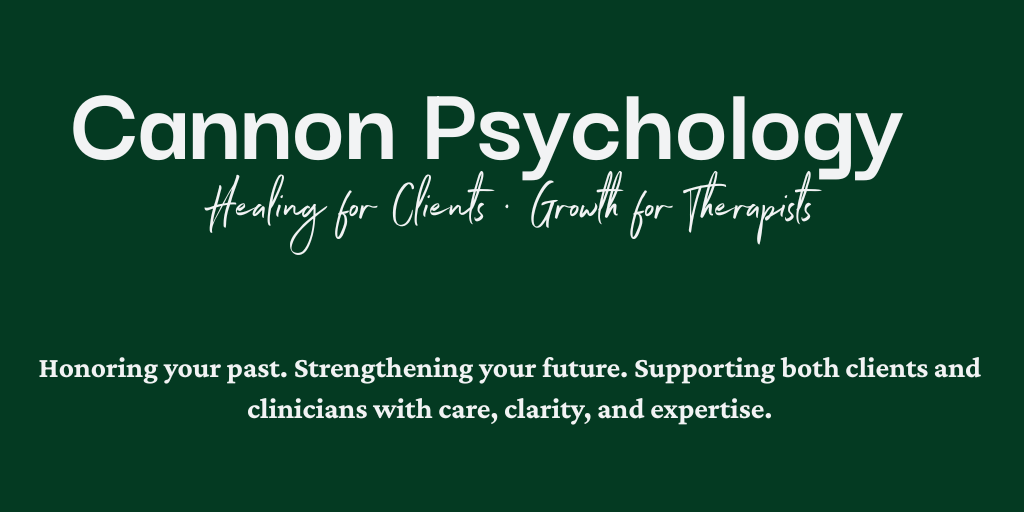
Therapy for Entrepreneurs and Leaders Who Feel Stuck

I help entrepreneurs and leaders who feel stuck. Sometimes it looks like perfectionism, procrastination, or imposter syndrome. Other times it shows up as anxiety in high-stakes situations — like pitching to investors or making bold business decisions.
What I see so often is that these struggles aren’t a sign of weakness — they’re signs of old survival strategies showing up in new places. When your nervous system is wired for caution, it can override even the best business instincts. Therapy helps you quiet those old responses so your present-day self, not your past experiences, gets to make the decisions. My goal is to help you access the clarity and steadiness you already have inside, so that high-stakes situations feel less like a test and more like an opportunity.

When Stress Turns Into Numbing
For some leaders, the pressure doesn’t just show up as overthinking — it can slip into drinking, overworking, or other ways of numbing. I have advanced training in addiction-focused EMDR and specialize in helping people break the cycle of stress, use, and shame. You don’t have to feel like success comes at the cost of your wellbeing.
Many high-achievers I work with feel caught in a cycle: push harder, burn out, and then reach for something to take the edge off. That “something” may work temporarily, but it often adds another layer of guilt or shame on top of the stress. Therapy helps you step out of that loop by healing the underlying triggers and building healthier ways to recharge. This isn’t about removing ambition — it’s about making sure your drive to succeed isn’t quietly running you into the ground.

emdr for problematic drinking
In many executive and leadership circles, drinking isn’t just accepted — it’s woven into the culture. Deals are celebrated over cocktails, networking often happens at happy hours, and unwinding with alcohol can feel like the norm. But when “just one drink” becomes the automatic stress reliever, it can blur the line between professional culture and personal coping. I help leaders recognize where the culture ends and where their own wellbeing begins, so they can stay connected in their professional world without sacrificing their health, clarity, or self-respect.
For others, alcohol isn’t the main struggle — the numbing might show up in endless work hours, over-exercising, scrolling late into the night, or filling every moment with productivity. These strategies can look successful from the outside but quietly drain energy, relationships, and joy from the inside. In therapy, we look at what those habits are protecting you from, and then build healthier ways to manage pressure so that your focus and drive can come from a place of balance rather than burnout.

Supporting Therapists, Too
Alongside my clinical practice, I also provide EMDR consultation and continuing education for therapists nationwide. Elevating the profession means ensuring more clinicians feel skilled, confident, and ethical in their use of EMDR. Whether you’re seeking personal therapy or professional growth, my work centers on helping people do their best work in the world.
I know firsthand how isolating clinical work can feel — especially when you’re managing complex trauma cases without a clear roadmap. That’s why I design resources and trainings that are practical, research-grounded, and easy to apply the next day with clients. My aim is not just to teach EMDR protocols but to support therapists in developing the confidence to adapt them thoughtfully and ethically. In doing so, we raise the quality of care across the field while reducing burnout and second-guessing for clinicians.

My Approach
I primarily use EMDR therapy and integrate Internal Family Systems (IFS) when helpful. I’ve completed Level 1 IFS training, which allows me to incorporate parts work in a safe, structured, and trauma-informed way. Both approaches are evidence-based and deeply effective for addressing the root causes of anxiety, trauma, and stuckness. My style is warm, direct, and collaborative — I’ll meet you where you are, and we’ll move at a pace that feels safe but forward-moving.
What this means in practice is that therapy is not just about insight — it’s about transformation. EMDR helps the brain reprocess old experiences so they lose their grip on the present. IFS helps you build a compassionate relationship with the parts of yourself that still hold pain, fear, or protective roles. Together, these approaches allow us to go beyond surface-level coping skills and into lasting change. You’ll leave not just with tools, but with a stronger sense of who you are and how you want to show up.

My Credentials
PhD in Clinical Psychology
Licensed Clinical Psychologist since 2011
Certified EMDR Therapist and EMDRIA Approved Consultant
Level 1 trained in Internal Family Systems (IFS)
Former Clinical Director of addiction treatment centers
Developer of APA-accredited continuing education programs for therapists
I’ve spent my career at the intersection of trauma and addiction treatment. Before launching Cannon Psychology, I held leadership roles in inpatient and residential treatment centers where I oversaw multidisciplinary teams and helped develop evidence-based programming. Over time, I recognized the need for approaches that don’t just manage symptoms but actually resolve the underlying issues — and EMDR became the cornerstone of my work. My teaching and consultation now extend that expertise to other therapists so clients everywhere can benefit.

Next Steps
My fee is $250 per 50-minute session. You can read more on my Investment page.
Therapy is a big step, and it’s important to find someone you feel comfortable with. A consultation gives us space to talk through your goals, answer your questions, and make sure we’re the right fit. If you’re ready to clear what’s holding you back, I invite you to book a consultation.


